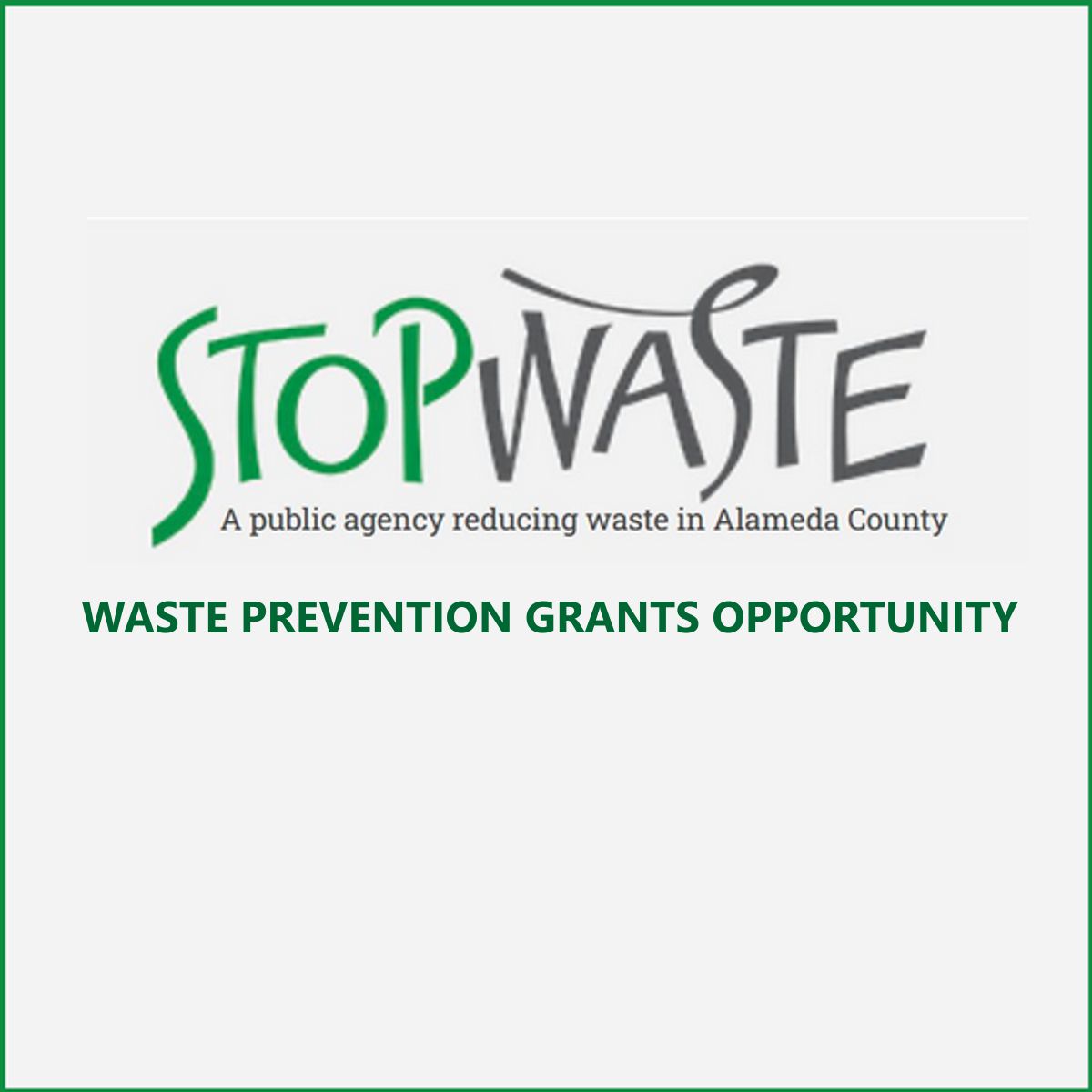StopWaste Offers $1.1 million in Waste-Prevention Grants
StopWaste Offers $1.1 million in Waste-Prevention Grants

StopWaste is a public agency that helps Alameda County's businesses, residents, and schools prevent waste, recycle more, and use water, energy, and other resources efficiently. In January, the agency announced it is offering $1.1 million in grant opportunities to nonprofits, businesses, and institutions such as schools for waste-prevention projects. Proposed projects must be located in or serve residents or businesses of Alameda County. Applications are due no later than March 14, 2024. The winning projects will be announced on May 22.
“Funding priorities are related to projects that focus on waste prevention, reuse, and recovery of food, goods, and materials as well as development, marketing, and products made with recovered materials,” according to StopWaste officials. One past grantee, for example, eliminated buying and then disposing of more than 27,000 pounds of plastic wrap each year by switching out single-use material for reusable wrap. Another traded disposable lunch trays and other meal utensils for reusable, stainless-steel ones.
"Here in Alameda County we are fortunate to have so much initiative, innovation, and wisdom at the community level to guide projects that not only prevent waste but at the same time address equity, economic opportunities, and community health,” says Timothy Burroughs, StopWaste’s Executive Director. “The grant program is designed to support and advance this important work."
There are six different StopWaste grant categories: Community Food Systems, with up to $10,000 per grant; Food Waste Prevention and Recovery, with up to $30,000 per grant; Reuse and Repair, with up to $25,000 per grant; Surplus Food Donation Equipment, with up to $10,000 per grant; Reusable Transport Packaging Equipment, with up to $10,000 per grant; and Reusable Foodware Infrastructure, with $5,000 to $25,000 per grant.
An earlier Community Food Systems grant from StopWaste went to Livermore’s Goodness Village, a tiny home community for people transitioning out of chronic homelessness. With the grant, Goodness Village officials “purchased equipment to store and process recovered, surplus food to feed the Village,” according to StopWaste officials, who say residents have also learned “to make jams, preserves, and other upcycled food products for sale, with proceeds coming back to support the Village.”
The Reuse and Repair grants “fund innovative projects that prevent waste through reuse, repair, deconstruction, redistribution, product or process redesign, and other methods of recovery, conserving natural resources while stimulating economic activity in the reuse and recovery sectors,” officials say. One example is Nonprofit Tech Exchange, which received a grant for its work to help close the digital divide by collecting, refurbishing, and distributing decommissioned technology devices to households across the Bay Area.
The Alameda County Community Food Bank was able to purchase a new glass-door freezer unit thanks to an earlier Surplus Food Donation Equipment grant, according to StopWaste officials. The new freezer allowed the food bank to “recover an additional 13,130 pounds of frozen food items. The unit also allows the Food Bank’s clients to select their own frozen items, resulting in a more dignified shopping experience.”
StopWaste is governed by the Alameda County Waste Management Authority, the Alameda County Source Reduction and Recycling Board, and the Energy Council. StopWaste works cooperatively with 17 member agencies: the County of Alameda; each of the fourteen cities in the county, including the City of Pleasanton; and two sanitary districts that provide refuse and recycling collection services.
For more information about StopWaste, please visit www.stopwaste.org.
For more information about the StopWaste waste-prevention grants, please visit www.stopwaste.org/at-work/stopwaste-grants.




